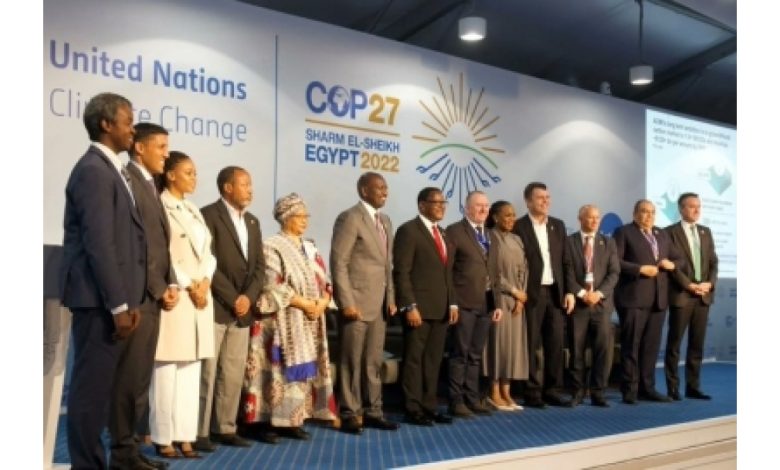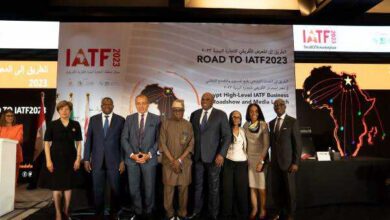
By Edu Abade
Climate activists in Africa have described the new Africa Carbon Markets Initiative (ACMI) launched at the 27th edition of the United Nations Framework Convention on Climate Change (UNFCCC) Committee of the Parties (COP27) in Sharm El-Sheikh, Egypt on November 8, 2022, as a further distraction from the real solutions to climate change.
A statement issued by the group at the ongoing COP27 and made available to journalists by the Director of Programmes, Corporate Accountability and Public Participation Africa (CAPPA), Philip Jakpor, revealed that the ACMI has a 13-member steering committee of African leaders, chief executive officers (CEOs) and carbon credit experts, who believe that the initiative will support the growth of carbon credits production, create jobs and protect biodiversity in Africa.
In addressing the climate crisis, the activists, who want African leaders to reject what they termed ‘the financialisation of nature,’ demanded that the Global North and Big Polluters must end burning of fossil fuels, pay for losses and damage and cancel Africa’s debts to enable countries to redirect resources to workable climate change actions and aspirations.
The initiative, which has been completely rejected by the environmental activists, some of who are attending the COP27, also claimed that by 2050 it is targeting over 1.5 billion credits annually in Africa, leveraging over $120 billion and supporting over 110 million jobs.
Kenya, Malawi, Gabon, Nigeria, and Togo shared their commitments to collaborating with ACMI to scale up carbon credit production through voluntary carbon market activation plans.
But in the statement issued on November 9, 2022, the climate activists from Africa argued that the initiative is best described as the “incentivisation” of pollution, which will jeopardize efforts to reduce carbon emissions at source.
“The climate crisis cannot be solved by shifting air from one part of the world to another, which this initiative essentially will be doing, making Africa some sort of a virtual dumping site, while our leaders cash in on another false solution,” they said.
Read Also: Enugu 2023: Group endorses PDP governorship candidate
Reacting to the initiative, Executive Director, Health of Mother Earth Foundation (HOMEF), Nnimmo Bassey said: “This initiative is a disincentive to progress in cutting down on emissions. Carbon trade is simply business at the expense of the planet. Unfortunately, the fossil fuel industry backed by governments of the Global North, have found willing partners in African leaders, who have shockingly decided to close their ears to the cries of their people carrying the biggest burdens of the climate crisis.”
Also, Executive Director of CAPPA, Akinbode Oluwafemi, said: “It is disheartening that at a time when the crucial discussion centres around voluntarily cutting down on emissions, African leaders are again embracing a false solution that licences and encourages pollution to continue on the continent.”
On his part, Ndivile Mokohena of Gender CC, South Africa said: “As African leaders drift in every wrong direction at the whim of the fossil fuel industry and their enablers, people on the continent continue to suffer. Leaving the fossils in the ground is the faultless path that the world continues to ignore. This carbon market initiative is
disappointing”
Besides, Kwami Kpondzo of Friends of the Earth, Togo said: “It would seem that African leaders are determined not to learn from their past mistakes. For a fictional initiative that keeps Africa locked in the fossil fuels trap to be conceived as at a time that Africa is on the grip of climate crisis is totally inconceivable and unacceptable.”
Follow The Trumpet on all our social media platforms for more updates:




